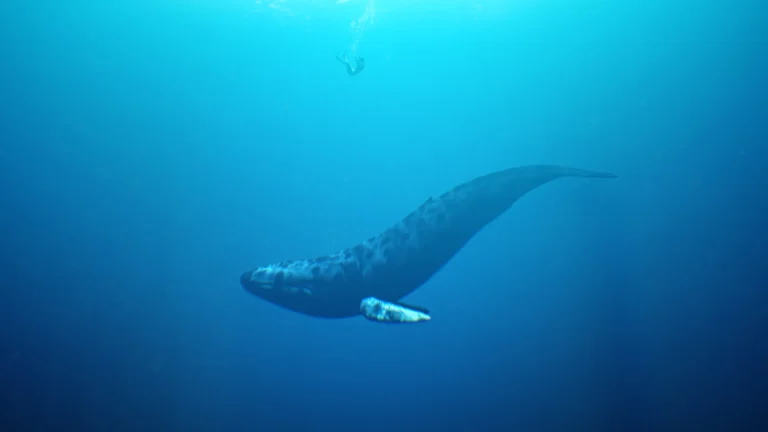Jonah is Unique among the Hebrew Prophets
Have you ever sat down and thought about the story of Jonah? Why is it in the Bible? Alongside all of the other prophets in the Bible it seems out of place. What happens when God calls Samuel? He replies “Speak Lord, for your servant is listening”. How does Isaiah respond when God is looking for someone to preach his word? He cries out “Here I am, send me”. When God calls Amos, he goes. When Hosea is called, he obeys. When Jonah hears the word of the Lord he runs. Jonah’s rejection of the word of the Lord and refusal to obey God sets him apart from the other prophets of God that we see throughout Scripture.
Jonah’s Historical Backdrop
The first thing we should note when we look at Jonah, is that the book that bears his name is not the first time we hear from Jonah the son of Amittai in scripture. The word of the Lord comes to him in the days of Jeroboam II of Israel and he is called God’s “servant” (2 Kings 14:25). In that story, God saw how bitterly Israel was being oppressed and, even though Jeroboam II was an evil king who rejected God’s commands and wasn’t faithful to the covenant that God had made with his people, the Lord sent Jonah to bring a message of blessing and restoration to the unfaithful king of his rebellious people.
At this time Jonah obeyed God and delivered the good news to the unfaithful Israelite king. The prophecy came to pass; Jeroboam II retook the land that God had promised to give back to Israel but we have no indication that he ever repented of his sin or turned to God in any way. Jonah had seen God bless undeserving unfaithful people who didn’t deserve his grace. I think this fact is vital to understand why Jonah reacts the way he does by fleeing later on in the book of Jonah.
The Story of Jonah
After letting the sin of the Assyrians go on long enough, God tells his prophet Jonah to go to Ninevah and preach against their evil. But Jonah doesn’t respond like all of God’s other prophets. Jonah runs away. The city of Ninevah was located where modern-day Mosul sits which is about 1000 kilometers east of Israel. Jonah hears the word of God and boards a ship bound for Tarshish which is located in modern day Spain about 5000 kilometers to the west. In response to God calling him to the east, he is fleeing to the western edge of the known world, as far west as possible.
On the way to Tarshish, the ship he boarded gets swept up in a major storm. The sailors are afraid for their life and calling out to their pagan gods for help. Finally, the captain wakes up Jonah and tells him to call out to his god that they might be saved. Did you catch that? The pagan ship captain was the one who had to remind God’s prophet to pray for help. The sailors who don’t know or follow the God of Israel act in more faith than God’s own prophet. Unfortunately, this is not the last time that Jonah fails to serve as a godly example in the story. In fact, the very next thing the sailors do is cast lots and determine that the storm is the fault of Jonah. Jonah tells them that he is a servant of “the God who made the sea” and they are afraid because they know he is running from this God’s command.
Jonah asks the sailors to kill him by tossing him into the sea to stop the storm. At first this may seem like a noble thing for Jonah to want to sacrifice himself, but I don’t think this is the case at all; Jonah’s death request is perhaps his most rebellious and selfish act yet. God wasn’t after Jonah’s sacrifice, he wanted his obedience. Jonah’s death would ensure that he wouldn’t be able to obey and it would bring guilt upon the sailors for killing him. Again, the pagan sailors fear God more than God’s own prophet by refusing to kill God’s rebellious prophet. However, after struggling against the storm some more, they pray for forgiveness – something Jonah has yet to do – and toss him into the sea where he is swallowed by a big fish.
In the Belly of Sheol
In his watery grave, Jonah calls out to God vowing to pay what he has vowed to God. He doesn’t specify exactly what these vows are, but presumably they are vows of obedience because God grants him his life back and has the fish vomit him out on the shore. Jonah is alive again and God calls him to go to Ninevah a second time. Jonah now faces the same choice he had before; will he obey God and bring the word of the Lord to Ninevah or will he go back on his vow and flee again?
The Worst Sermon and the Greatest Revival
Jonah chooses to obey God this time, although his heart doesn’t seem to be in it. He makes it to Ninevah and preaches what might just be the shortest and worst sermon in the history of the world, “Yet forty days, and Ninevah shall be overthrown!” (Jonah 3:4). In the original Hebrew, it is only five words. Do you notice anything missing from Jonah’s sermon. There is no mention of Ninevah’s sin, no call to repentance, and no mention of any hope for the people of Ninevah. Yet despite Jonah’s awful sermon, the people of Ninevah repent far quicker and far more authentically than anyone could have predicted. The message reaches the king and he declares a fast and calls every person and animal in the city to fast and repent of their evil ways. The pagan king of Ninevah is preaching the message of repentance that God’s prophet forgot couldn’t bring himself to mention.
Jonah’s Failure
God heard their cry, saw their repentance, and he relented of the disaster that he had proclaimed for Ninevah. The city had been saved. Normally this would be the end of the story, but not this time. God had proclaimed mercy for Ninevah and God’s prophet was furious. Now we see why Jonah had refused to go to Ninevah before when he declares “That is why I made hast to Tarshish; for I knew that you are a gracious God and merciful, slow to anger and abounding in steadfast life, and relenting from disaster” and then he finishes by asking God to kill him because he couldn’t stand to see Ninevah receive mercy.
Jonah had brought good news of God’s mercy to Jeroboam II and seen God bless an unfaithful king and a rebellious people. Now the second time we see him preaching the word of the Lord he has seen something similar; God has forgiven an evil king and relented from disaster on wicked people; only this time, they were not Israelites, they were Jonah’s enemies. Jonah is more than happy to deliver the words of blessing and hope to his own people, but he doesn’t want to live in a world where God forgives his (Jonah’s) enemies.
The Assyrians had been at war with Israel for decades and had killed thousands of them. Jonah knows that his God is gracious and merciful so he tried to run as far as he could and twice now he has asked someone to kill him because he can’t bear the though of his enemies finding forgiveness.
Jesus’ Most Radical Teaching
The story of Jonah contains several parallels to the Story of Jesus. Like Jonah, Jesus left his home and went to a place that was run and governed by his enemies. Just as Jonah spent three days dead in the belly of a fish, Jesus spent three days dead in the heart of the earth (Matthew 12:40).
However, I think it is more important to note where Jonah is not like Christ because that is what stands out most in the story of Jonah when we lay it next to the teachings of Jesus. Twice in the story, we see that Jonah hates the Ninevites so much that he would rather die than see God show them mercy (Jonah 1:12, 4:3). Jesus on the other had teaches us to love our enemies (Matthew 5:44) and he would rather leave his rightful place at the right hand of God and come to our world to lay his life down for his enemies that they might find God’s forgiveness and mercy. Jonah didn’t want to live in a world where his enemies were forgiven but Christ gave his own life that his enemies might be forgiven.
God’s Question to Jonah (and to us)
In the end, we see that the book of Jonah is a story about God’s disobedient prophet who would hated the fact that God loved his enemies. The book of Jonah ends with God asking Jonah a rhetorical question that is meant to show Jonah that God is good and right to love even his enemies. And how does Jonah respond? We don’t know. The question is left hanging without an answer from Jonah while God is waiting for Jonah to come around to his point of view. Perhaps it is not recorded because Jonah has another embarrassingly negative response in a fit of rage and gives up on following God. Or maybe it is not recorded because Jonah’s answer to God’s question is not the point of the book. In the story, God is asking Jonah if he is ok with God loving his (Jonah’s) enemies but, even more than that, God is asking us today, “Are we ok with following a God who loves our enemies?” Will we take up the call of Christ to love our enemies or will we, like Jonah, refuse to listen and be destroyed and consumed by our own hatred?
We must remember, that if God didn’t forgive his enemies, then none of us would have any hope. If God’s enemies never found grace, mercy, and forgiveness then there would be no gospel and all of us would still be desperately lost in our sins on a path toward our ultimate destruction.
“…but God shows his love for us in that while we were still sinners, Christ died for us. Since, therefore, we have now been justified by his blood, much more shall we be saved by him from the wrath of God. For if while we were enemies we were reconciled to God by the death of his Son, much more, now that we are reconciled, shall we be saved by his life.”
Romans 5:8–10



